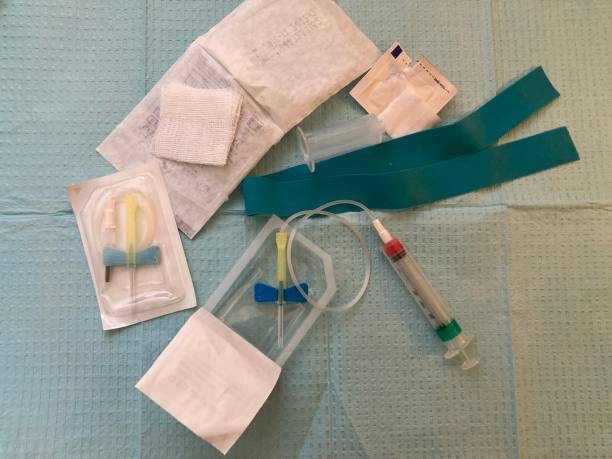Walk into nearly any health facility, hospital, or long-term care facility in Houston, and you’ll possibly pay attention to the same story from administrators and groups of workers: “We need more nurses.” It’s not only a staffing hiccup—it’s an ongoing task that’s shaping affected person care, workplace dynamics, and the future of healthcare within the Bayou City.
The nursing scarcity isn’t only a Houston problem; it’s a national problem. But in a city as rapidly developing and medically superior as ours, the effects are specifically visible. Houston is home to the Texas Medical Center—the biggest scientific complex in the world—and countless smaller hospitals, urgent care facilities, and areas of expertise practices. That way, the call for nurses here is continually high. Right now, even though demand is massively outpacing supply.
How Did We Get Here?
The nursing shortage in Houston didn’t happen overnight. It’s the result of numerous factors converging over the years:
1. Rapid Population Growth
Houston’s population has been booming for years. More human beings are way greater sufferers, and more sufferers suggest an extra call for healthcare services. Nurses are at the heart of that device, so any spike in population puts extra stress on staffing.
2. Aging Population
Like a good deal of the U.S.A., Houston has a developing wide variety of older adults. As humans age, they normally require extra hospital therapy, from habitual tests to complex tactics.
3. Nurse Retirements
Many experienced nurses are achieving retirement age, and there aren’t sufficient new graduates coming into the sector to replace them quickly. When veteran nurses go away, healthcare systems lose not only skilled people but also mentors for younger groups of workers.
4. Education Bottlenecks
Houston has numerous nursing colleges, but there’s a cap on how many students they can take delivery of each year. Faculty shortages, restrained scientific training spots, and budget constraints mean the pipeline of new nurses isn’t as complete as it may be.
The Impact on Patient Care
When there aren’t enough nurses, affected person care inevitably feels the pinch. A scarcity can suggest:
- Longer wait times in emergency rooms and clinics
- Increased stress for each sufferer and healthcare companies
Nurses are often the primary point of contact for patients. They take crucial symptoms, administer medicines, monitor recuperation, and provide emotional help. When their workload becomes unmanageable, the best of care can go through—now not because nurses aren’t skilled or caring; however, because they surely don’t have sufficient hours in the day.
How Houston Is Responding
The right information? Houston’s healthcare community isn’t sitting still, nevertheless. Several techniques are being carried out to cope with the shortage:
1. Expanding Nursing Education
Local nursing programs are running to admit extra college students every so often by way of supplying extended degrees, night lessons, and online alternatives. Partnerships among hospitals and universities are helping create more scientific schooling opportunities.
2. Recruitment Incentives
Some Houston hospitals offer sign-on bonuses, relocation help, training compensation, and aggressive salaries to draw nurses from different cities and states.
3. International Recruitment
To fill essential gaps, healthcare systems are searching distant places, bringing in experienced nurses from countries with strong nursing education programs.
4. Flexible Scheduling
Burnout is a massive motive for nurses leaving the field, so more employers are offering flexible shifts, comp-time options, and mental health assistance to retain personnel.
5. Upskilling and Career Development
Hospitals are investing in professional development applications, allowing the contemporary body of workers to gain new certifications or transition into specialized nursing roles without leaving the organization.
Opportunities for Aspiring Nurses
While the dearth poses demanding situations, it also creates possibilities—specifically for humans considering a profession in nursing. In Houston, demand for registered nurses (RNs), nurse practitioners (NPs), and specialized nurses is powerful and projected to develop for years.
Job Stability
Nursing is one of the strongest professional paths in healthcare. With Houston’s increasing medical area, qualified nurses hardly ever venture out to discover work.
Why Retention Matters as Much as Recruitment
Bringing new nurses into the staff is the easiest part of the equation. Keeping skilled nurses is just as vital. A nurse with 20 years of experience can mentor a younger body of workers, troubleshoot troubles speedily, and provide valuable patient care insights.
Retention techniques regularly focus on:
- Workplace tradition – Creating supportive, respectful environments
- Fair repayment – Ensuring pay reflects the intensity and significance of the paintings
- Recognition – Valuing nurses’ contributions through awards, remarks, and expert appreciation
- Support assets – Offering counseling, wellness applications, and good enough staffing to prevent burnout
The Role of Technology
Technology is also gambling on an element in easing the nursing shortage. Electronic health records, telehealth, and AI-powered equipment can streamline a few administrative tasks, permitting nurses to focus extra on direct patient care. Houston’s hospitals are among the leaders in adopting those tools that can help make nursing roles more efficient and sustainable.
A Community Effort
Solving Houston’s nursing shortage isn’t just the duty of hospitals and colleges—it’s a network effort. Public awareness matters. Encouraging young human beings to explore healthcare careers, supporting nursing college students, and advocating for healthcare funding can all make a difference.
Patients can help too, through being affected persons (no pun intended) with wait times, showing appreciation for nurses’ work, and sharing information that staffing shortages are a systemic issue, not an individual failing.
Looking Ahead
While there’s no quick repair, the trajectory doesn’t have to be bleak. If Houston maintains investing in nursing education, retention applications, and ERs, the city can improve its healthcare body of workers for the future.
They’re the ones conserving your hand before a surgical procedure, explaining medications, or presenting a smile in a scary second. Addressing the nursing scarcity is greater than staffing numbers—it’s approximately preserving the human connection that defines exceptional care.
Bottom Line: Houston’s nursing shortage is excessive, but it’s also a sign of movement. With collaborative efforts from educators, healthcare leaders, policymakers, and the public, the town can rebuild a stronger, more resilient nursing frame of workers—one that meets today’s goals and the following day’s stressful situations head-on.



